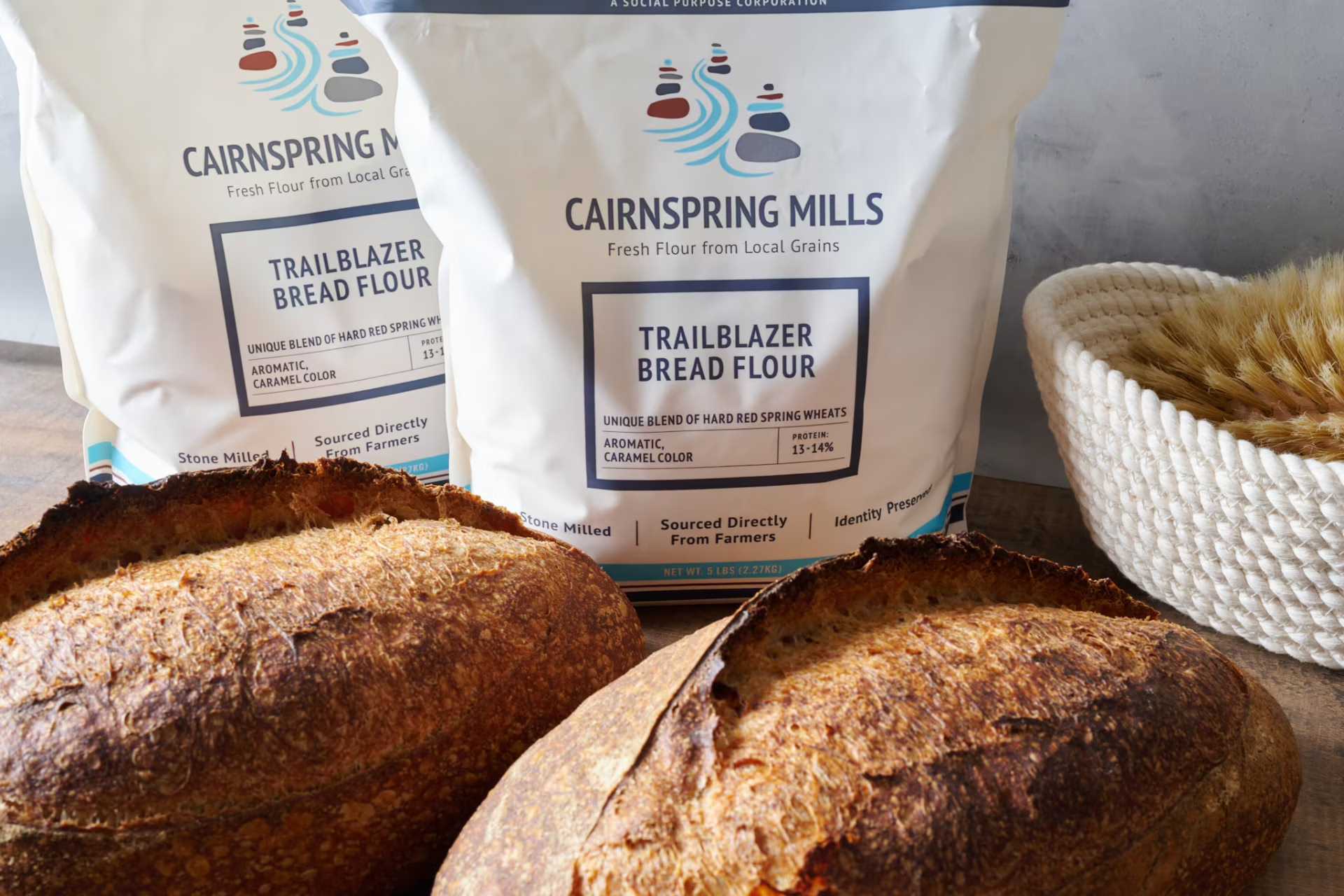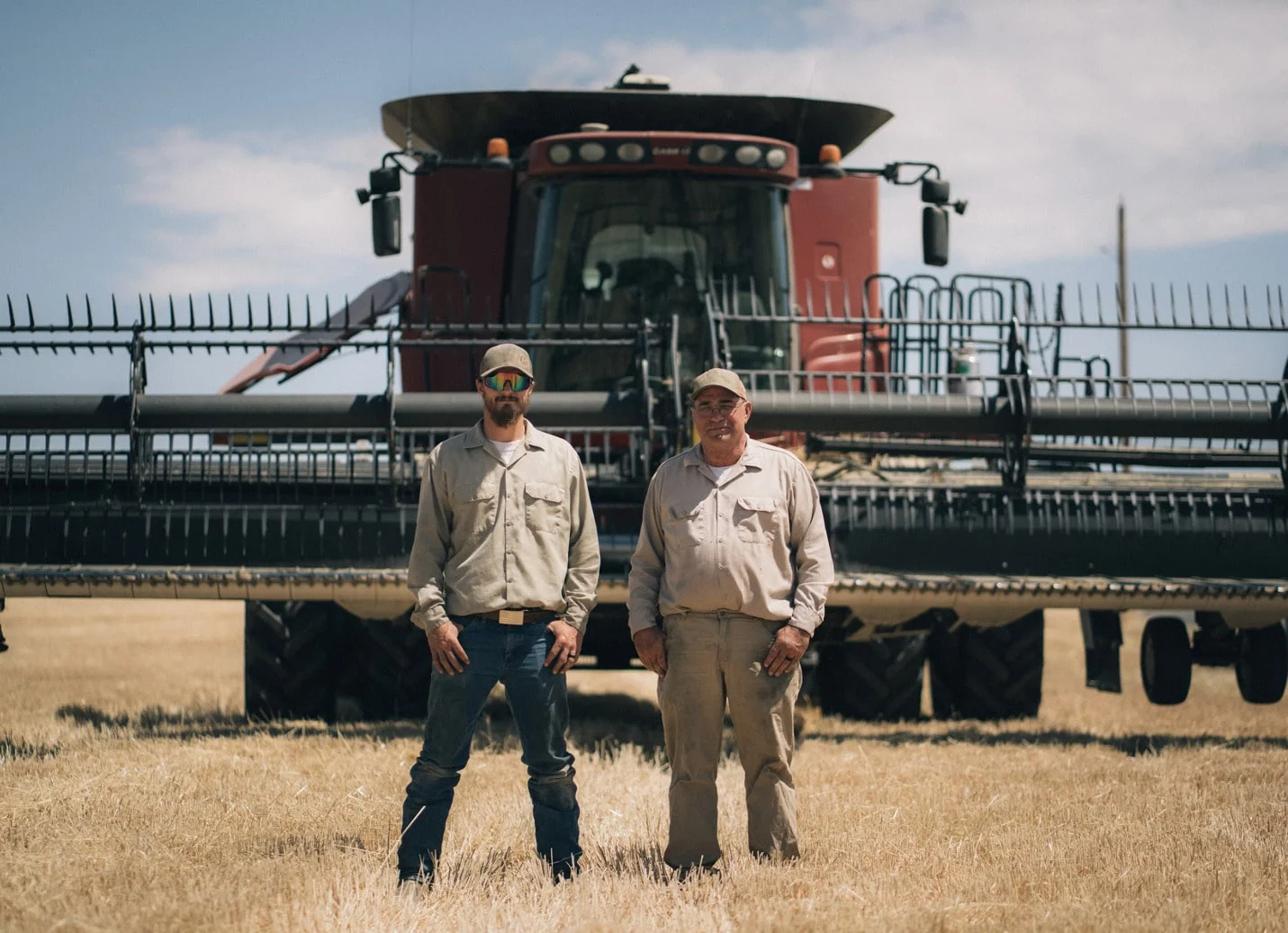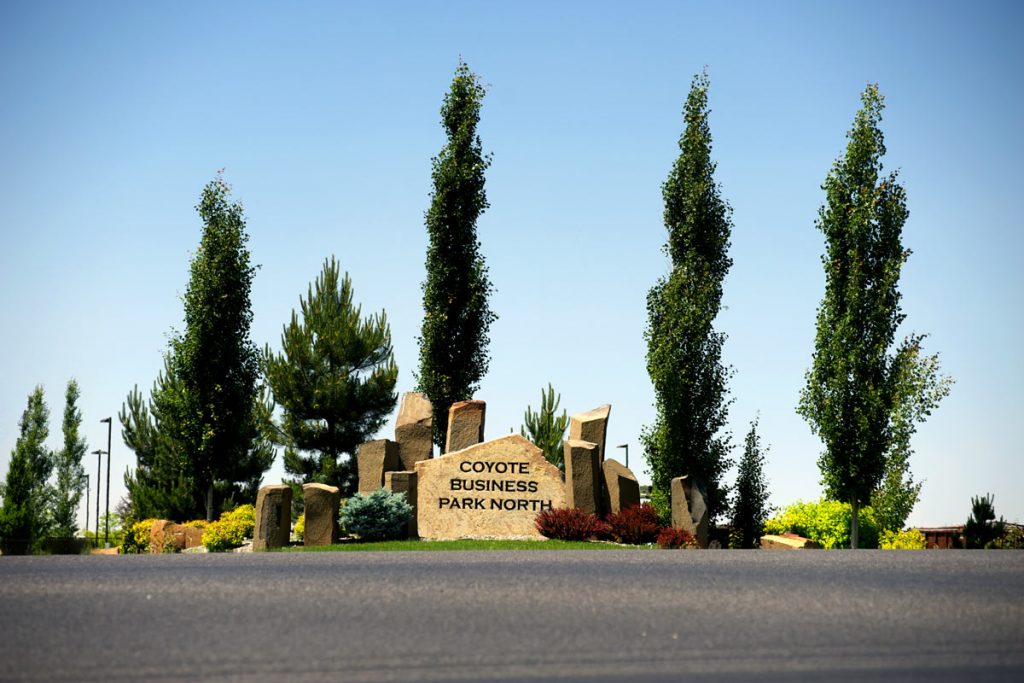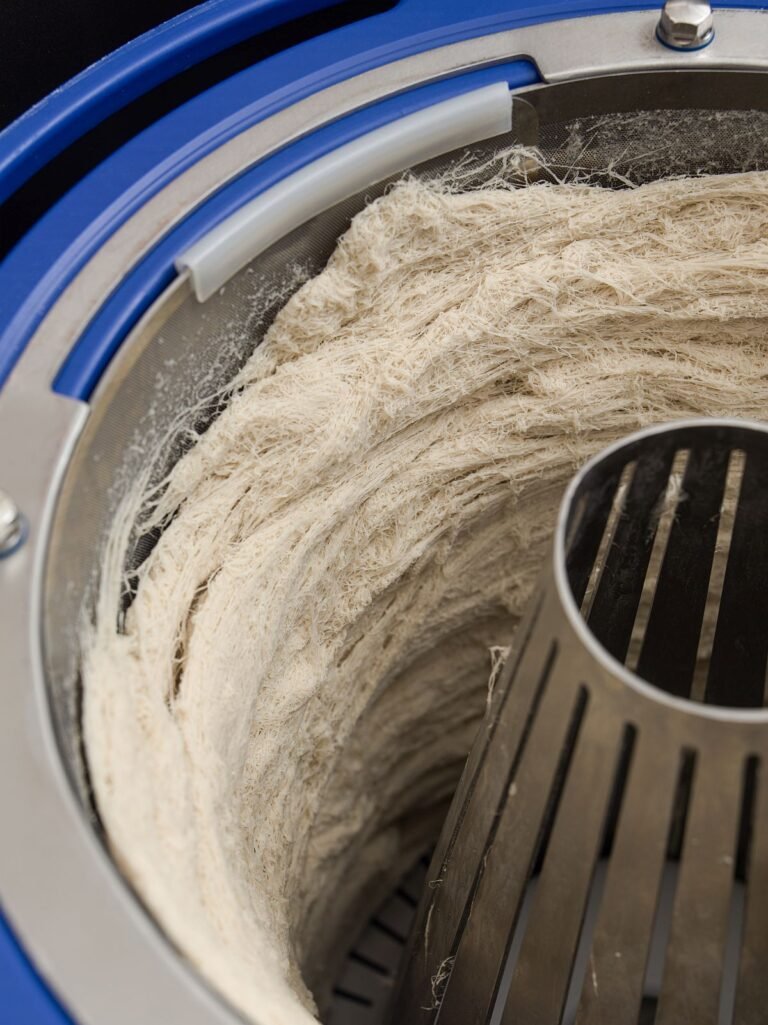
Craft beer and craft coffee are de rigueur for many these days, but what about craft flour?
Cairnspring Mills, based in Washington state in the US, is betting on a bright future for premium flour grown from regenerative wheat and milled using what CEO Kevin Morse calls “the thousand-year-old craft of stone milling wrapped in modern, high tech.”
Founded about a decade ago, Cairnspring Mills aims to put both nutrition and community development back into the process of flour-making—elements that invariably get lost in the industrial milling process.
“What we’re really trying to do is build a business that’s not only regenerative and scaling, but that is regenerative from the environmental and human perspective,” Morse told AgFunderNews.
Cairnspring Mills has hit a few notable milestones in 2025, including raising more than $1 million in under one month and expansion to a new mill facility in partnership with the Confederated Tribes of the Umatilla Indian Reservation (CTUIR).
The latter just made a $5 million equity investment in the forthcoming Blue Mountain Mill, which will be located on tribal lands.
Morse discussed this and numerous other topics with AgFunderNews, including how the company defines “regenerative,” why community is so important to the process, and why flour is next in line to star in the craft foods movement.

AgFunderNews (AFN): What is Cairnspring Mills’ origin story?
Kevin Morse (KM): This business had been like an old-fashioned barn raise.
The idea for it was born out of the Skagit Valley’s commitment and the community’s commitment to maintaining a viable agriculture industry here for another 100 years, and also their interest in maintaining the health of the soils, environmental quality, and the health and resilience of our community.
Resilience was a big part of our discussion early on. We saw there is a business here and a need, but we’re also coming at it from not just an economic resilience [perspective], but also a bigger-picture resilience of how we handle things like climate change and other geo-political issues that come about.
So Cairnspring Mills was really born out of this community’s interest in all of those things, and that was 10 years ago.
The main players at the table were the Washington State University Bread Lab (Dr Stephen Jones and his team), the port of Skagit, which is where we’re located, who actually helped us purchase and we lease back the equipment and the buildings. So this really was a community based effort.
AFN: What do you mean when you say “craft flour?”
KM: We really think flour is the next craft revolution. We’re doing for flour what Blue Bottle did for coffee, or what Dogfish and Pyramid did for beer. We wanted to make a distinctly different, premium product.
As we studied milling and milling techniques, and learned how the modern industrial mills work, I was very convinced that stone milling was the way to go, because there’s a different physical process that actually mills the nutritional parts of the flour into the end product instead of extracting them, which is what happens [with] industrial milling. And so we went to Europe and Scandinavia and looked at modern stone milling systems that have the thousand-year-old craft of stone milling wrapped in modern, high tech.
AFN: how does your process differ from an industrial mill?
KM: So we’re doing several things that are different from industrial mills.
We’re sourcing identity preserved grains that aren’t [from] the commodity market. They’re direct from farmers using regenerative practices. We’re milling those fresh and we’re treating flour like a fresh product, and a lot of our manufacturing is “just in time.”
The flours that we have modeled [our flour after] aren’t really available in this country: the European-style bread flours that have more of the bran and germ in the end product. And that’s where the flavor and nutrition live, and that’s what’s stripped out in the industrial milling process. So we’ve created a very premium, high-quality product with unique grains and a unique milling process.
[Customers notice] a very different dough texture. They notice the difference in aroma and color and flavor and even performance.
Ours is an all natural product, and we are so close with our supply chain that we can really trace the quality through the system, from the field to the bag.
The way the big mills work, they buy the cheapest grain possible with a little bit of good grain, mix it up to make something that’s okay, and then when they mill it, they strip so much of the natural nutrition and flavor out they have to enrich it, not only with nutrients, but also with stabilizers and things like that.
We’re finding that could be one of those things [that causes] gluten intolerance, but it [really could be] intolerance to some of the enrichments and chemicals in the flour.

AFN: How do you talk to consumers about your product?
KM: It’s in line with, “Do you know where your flour comes from? This is how it’s made in the industrial milling process.”
And then we compare it to ours and how it’s different.
I don’t want to say it’s been simple, but that’s what’s helped people understand how we’re different. So in the communication is like, “Here’s how industrial flour mills work, here’s how we’re different. Here’s how our product is naturally nutritious, and what you might expect to see and the difference in your pancakes or bread.”
For us one of the big things has been people getting their hands in the dough. We’ve done that through media, social media, and we’ve done that through interviews like this. But really, it’s customer education.
AFN: And folks seem willing to pay the premium?
KM: We’ve been at max capacity in our current mill for two years now, and that’s why we’re expanding.
We are at a very, very high price point, which is where we want to be, because what we don’t want to do is race to the bottom.
Right now the farmers in the commodity system, it’s a race to the bottom. The cheap flour has costs that aren’t reflected in the price in terms of human, environmental health. What we’re really trying to do is build a business that’s not only regenerative and scaling, but that is regenerative from the environmental and human perspective, where we pay the farmers above commodity prices. We take better care of the soil, we take better care of our people, and we’re delivering a premium product to customers that care about all of those things.
Our expansion is our effort to get healthier flour into more people’s pantries. With the operating leverage of the mill, we’ll actually be a little more aggressive with our pricing, and be able to lower it some to make it more accessible, but we’re still going to be at premium percentages above the other mass premium brands that are on the shelves today.
AFN: What does “regenerative” mean in the context of Cairnspring Mills? How do you incorporate that mindset?
KM: We have invested in a sustainability manager who works with our farmers to evaluate their farming practices, helping them get certified. We’re working with all of our farmers to get various regenerative certifications, and so that is really core to our DNA.
And then from the human side, we pay our employees above living wage. We pay 75% of their health insurance and their dependents’ health insurance. We offer them stock options after they’ve been at the company.
I’m always saying to my team, “How do we add value?” The big industrial milling system extracts value from the farmer, from the soil, from our health. How do we add value and keep it in the community. And so that’s key to how we look at our whole business, from soil to the flour on the shelf.

AFN: Tell us about the forthcoming expansion.
KM: The new mill will be roughly 12x the capacity of the current one.
The current mill makes roughly 7.5 million pounds of flour a year, two shifts a day, five days a week, two shifts on a weekend. One big mill makes that much in one day.
So even though we’re going 12x, which might sound like a lot, that’s still what a big mill will make in two weeks.
Part of our intention with the scaling is to meet the demand that we’re experiencing and keep our soul, and so the new mill will have the same unique stone milling process, and a lot more technology for tracking and monitoring quality, which will be nice.
We’re going to create, 20-plus living-wage jobs in that community as well. This is part of our dream of growing and moving to other rural distressed communities and having these types of positive impacts, pulling the farmers out of the commodity system, creating a domestic market for wheat that’s high value.
AFN: Is expansion to other parts of the US a possibility?
KM: We have folks like Patagonia Provisions and other national bakeries interested in us both on the west coast and east coast. The dream and the vision has always been to have several mills and strategic locations—not huge ones, but ones that are generating the capacity and impact in the communities that we aspire to.
Our timing is spot on because of the trends of people wanting healthier, cleaner food, wanting to support the farmers.
AFN: How did you decide on the Umatilla Indian Reservation as the site for the new mill?
KM: I looked at about 20 sites in Washington and Oregon. I was with a rep from Business Oregon, and they were like, You have to take a look at the Coyote Business Park.
It was at the base of the Blue Mountains, right off the highway. I was like, All right, this is where I want to locate the mill.
So then I met the tribal leadership and the team at their economic development department, and we just found so much value-alignment there. They own and farm 15,000 acres that they want to convert to regenerative practices. They have bold policy priorities for food sovereignty and food resilience.
Over the past few years, they’ve welcomed us in and really helped us get through all of the trials and tribulations of development. They are investing as a partner in the company.
I had a conversation with the former tribal chairman this week. He said, “You know, Kevin, this isn’t just for the tribe. We think seven generations out, we’re doing this for our people and for the earth, but we’re doing this for everybody. We’re trying to show people a new way to do business through collaboration.”
And I just thought, wow, that’s incredibly profound, but also generous and compassionate, and we need more of that in this world.
The post Cairnspring Mills on the promise of regenerative ‘craft’ flour: ‘We’re doing for flour what Blue Bottle did for coffee’ appeared first on AgFunderNews.




